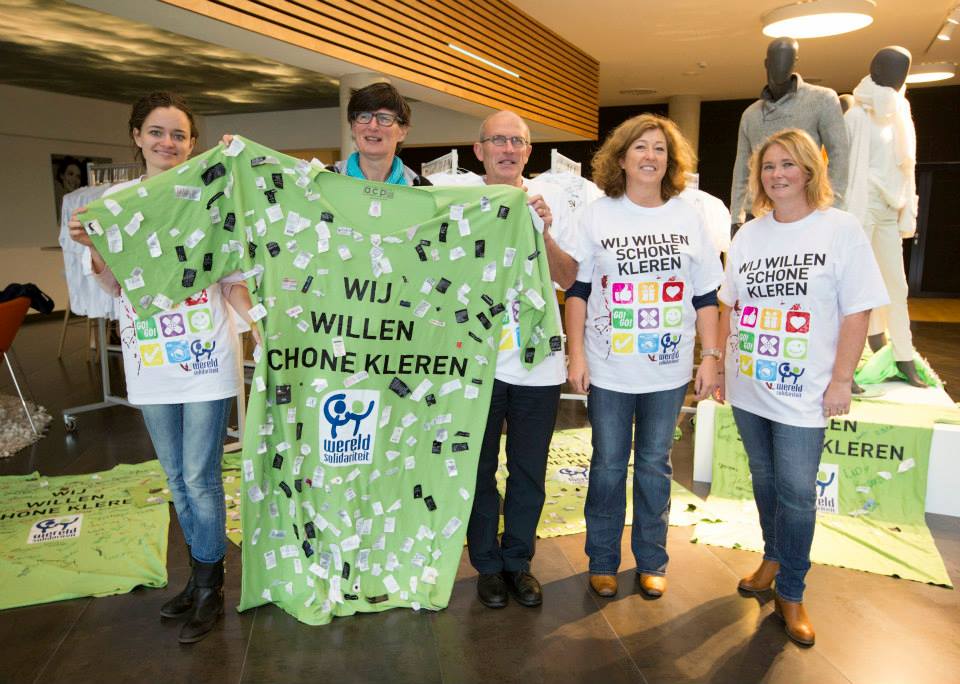Heard today during a negotiation between employers and workers :
The manager : «
You have to realize, sometimes the relationship between management and workers is like that inside a family. Like the children, they complain about their parents and protest, and it is only once they leave and go out into the world, that they realize how good they had it and come back.”
The worker, smiling, replied with another image: “
You know, management is a bit like a well. It has to be clear and transparent for people to drink from it. If they see it’s troubled and murky, they stay away from it.”
Now, this wasn’t a real negotiation, but it is pretty illustrative of the prevailing attitude in Nepal. It surely seemed very realistic to the participants of the role play. This simulation took place today during a training in collective bargaining for youth from our Nepali partner,
GEFONT. In the video, you can hear some testimonies from the participants, the facilitator, M Ramesh Badal and our contact person at GEFONT, brother Gopal.
Some of the participants highlight the difficulties they have faced, but also why this training is so helpful. Tara, working in the administration for an eye clinic, says they rarely get a letter of appointment (similar to a contract), are under great pressure while working and no minimum wage. Bhim, who works for a trekking company, notes the discrepancy between what western tourists pay for their hikes and what the porters, who do the heavy work, get paid. Sabin, who works in a 5 star resort outside of Kathmandu, explains how they have successfully used the collective bargaining process to obtain 20 of their 31 demands, while the management initially only agreed to 5.
The participants, forty workers under 30 years old, come from around Kathmandu and represent different sectors and companies. They’re almost all from the formal sector since this is where the Collective Bargaining (CBA) process can take place. The informal sector is unfortunately excluded from this process, though it accounts for more than 90% of the workers in Nepal. Most of them work for companies with between 50 and 300 employees so the potential for substantial impact is huge. Just imagine, that one out of four uses his/her skills to obtain improvements for companies of on average 150 employees, that means 1.500 people could get access to better wages or working conditions! Not to mention the ripple effect in certain sectors such agreements could have...

According to the Nepali legislation, CBA starts when workers depose a Charter of Demands, to which the management has 21 days to reply. If management agree to the demands, a Letter of Agreement is drafted and signed. If not, the workers have to go to the Ministry of Labour, which attempts a mediation during 15 days. In theory, they have 15 days to do so, in reality, it often takes one or two months. Before, this process often led to a Collective Agreement which had force of law and was valid for two years. Now however, also because the Ministry of Labour has weakened, it often fails. Workers only then have the option to strike, after a vote by secret ballot gathering at least 60% of the workers, but they have to wait another 30 days before the strike can take place. Also, the Nepali government has put in place an ‘
Essential Service Act’, which excludes certain sectors from this process and weakens the right to strike.
What struck me is that most of the negotiation aimed at... simply implementing and respecting current labour law. Basically, they had to negotiate and threaten to strike to enforce their already existing rights! An illustration of how often, ambitious laws or constitutions are passed, but that is only the start: a lot has to be done to ensure they are actually implemented, and hopefully this training with GEFONT will contribute to that! Because, even if the negotiation techniques and images used during the role play made me smile, it still draws a pretty sad picture....








.jpg)
.jpg)

















